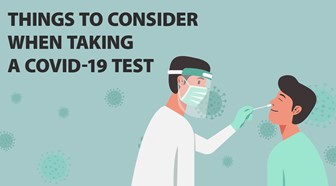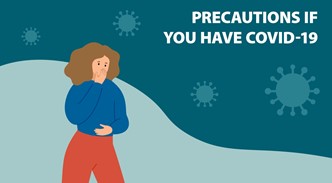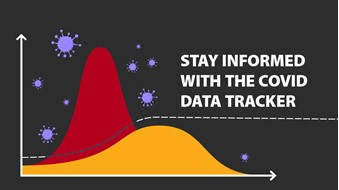The CDC has helpful COVID-19 information and information on ordering four free COVID-19 tests.
For more information, visit the CDC COVID-19 site.
Get 4 Free COVID-19 TESTS
Every U.S. household can order 4 more free COVID-19 self-tests. Self-tests (also called at-home tests and over-the-counter tests) are one of several tools that protect you and others by reducing the chances of spreading COVID-19. Self-tests can be taken at home or anywhere, are easy to use, and produce rapid results.
You can place an order:
- Online at COVIDTests.gov
- By calling 1-800-232-0233 (TTY 1-888-720-7489)
- By calling or emailing the Disability Information and Access Line (DIAL) at 1-888-677-1199 or DIAL@usaginganddisability.org (for people with disabilities)
Find more information here.
Things to Consider When Taking A COVID-19 Test
When you get tested for COVID-19:
- Make sure to test at the right time
- Choose the right type of test for your circumstance
- Follow test directions as recommended by FDA
Visit CDC’s website to learn more about COVID-19 testing, including how and when to use a self-test, and other things to keep in mind when you take a COVID-19 test. Many of us may have expired COVID-19 self-tests. Before you throw out “expired” COVID-19 self-tests, check to see if their expiration dates have been extended. The expiration date is the date through which the test is expected to perform as accurately as when manufactured. Sometimes, a test’s expiration date is extended. You can check FDA’s website to find more information on the test, including if the expiration date has been extended, how the test performs, and other details that may help you decide what test is right for you.
To learn more about COVID-19 testing, visit: COVID-19 Testing: What You Need to Know| CDC
To see if the expiration date for your at-home COVID-19 tests has been extended, visit: At-Home OTC COVID-19 Diagnostic Tests | FDA
Take Precautions If You Have COVID-19
If you have COVID-19, you can take precautions to protect yourself and others.
- Stay home and separate yourself from others
- Improve ventilation (air flow) at home
- Wear a high-quality mask when you’re around others
- Ask a healthcare provider about treatments that may be available to you
Stay Informed with the COVID Data Tracker
COVID Data Tracker provides the most recent data and trends on COVID-19 test positivity, emergency department visits, hospitalizations, and deaths. You can explore data on hospital admission levels to learn how COVID-19 is impacting your area, and also find information on variants and wastewater surveillance.Visit the tracker here.
How to Get Your COVID-19, Flu, and RSV Vaccines This Year
Immunizations are available this fall and winter in the United States that can help protect against three major respiratory diseases: COVID-19, flu, and RSV. Immunization against these viruses remains the best protection for reducing the risk of serious illness, hospitalizations, long-term health impacts, and death.
Recommendations for these immunizations vary based on age, pregnancy status, or medical conditions. To learn more, including how to find recommended immunizations, visit: How to Get Your Flu, COVID-19, and RSV Vaccines This Year | CDC





